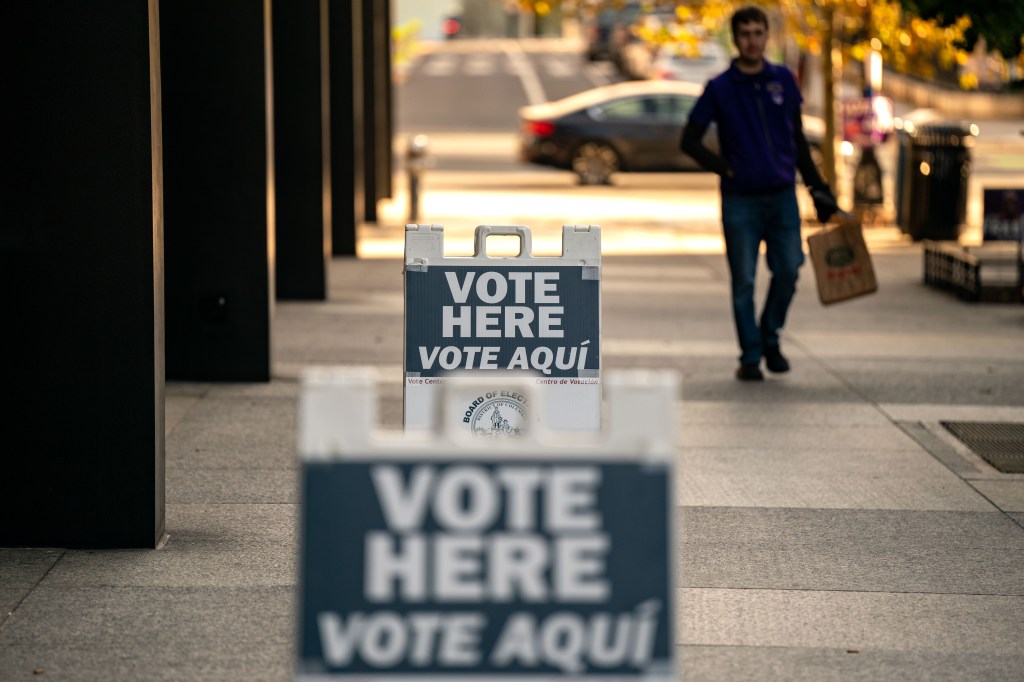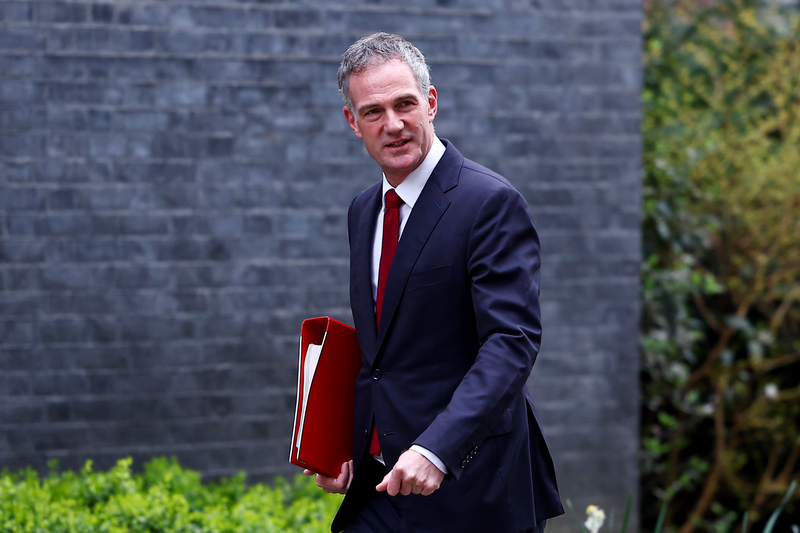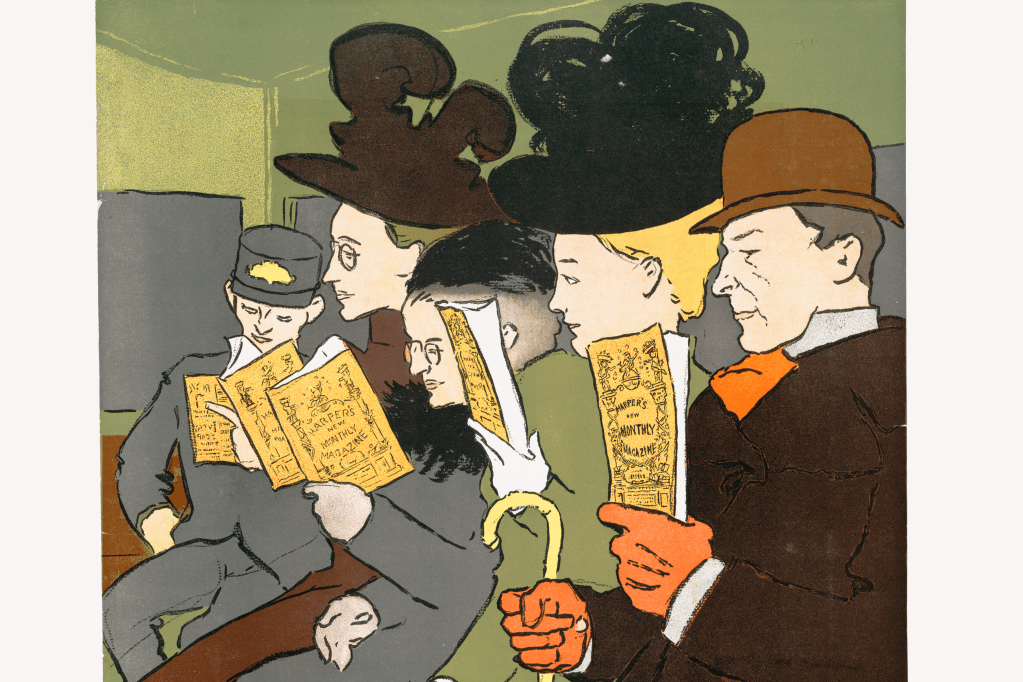Recommendations from the GRIP Team
Martin Cloake
Managing editor at GRIP
We’ve covered the debate over the introduction of a new regulator for English men’s football here on GRIP, and anyone wondering why regulation is needed should read the fascinating States of Play by Miguel Delaney, the chief football writer at The Independent.
Delaney’s starting point is that “The story of modern football is about how it has been transformed and distorted by three main forces”. These are geopolitics, hyper-capitalism, and a “willing facilitation” of both by football authorities unable and unwilling to deal with either. Pacily-written and forensically researched, the book traces the development of the modern game, setting out how it got to the current stage in which oligarchs and nation states see not just business but reputational opportunity in owning clubs. And there’s an extensive section on how and why Qatar got to host the World Cup.
This is a book that sits alongside Bradley Hope’s Blood and Oil and Catherine Belton’s Putin’s People as essential appraisals of the world we live in. Delaney contends that, by simply welcoming the money no matter where it is from or what it is used for, the game’s authorities have not only failed to recognise the sport’s true value, but also left it at risk from individuals who see their own interests as more important than that of the collective game. And that is the challenge the new regulator will have to address.
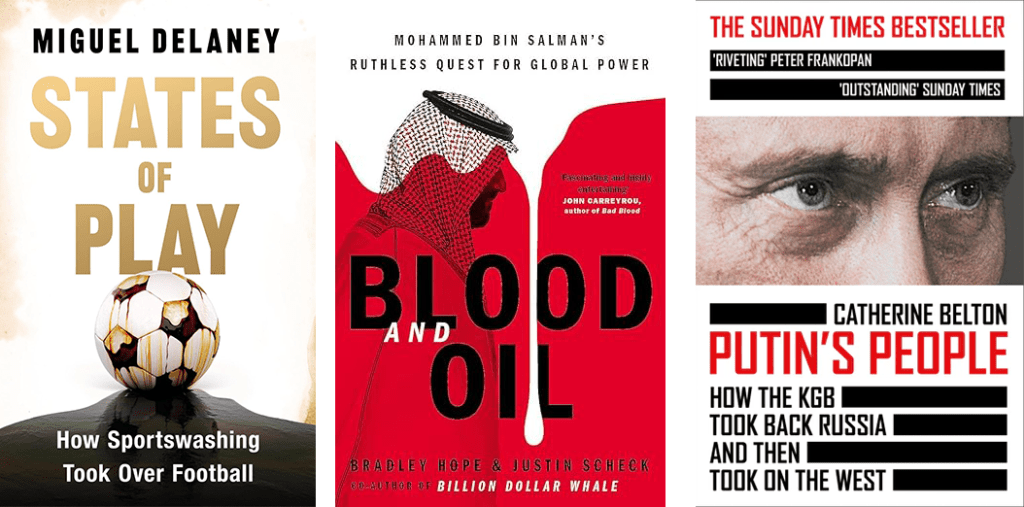
Julie DiMauro
US Content Manager at GRIP
If you want to read some compelling nonfiction that delves into the world of cryptocurrency, securities fraud and money laundering conspiracy, why not try Going Infinite (2023) by Michael Lewis?
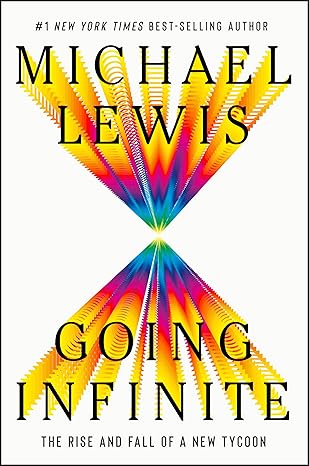
W. W. Norton
Lewis is known for his nonfiction books about finance, economics, and sports, and in Going Infinite, he weaves an intricate story that includes a biography with an exploration of financial crime, alternative finance and the US justice system. He details Bankman-Fried’s life as he builds his business and significant wealth, plus traverses the volatile world of cryptocurrency trading.
Bankman-Fried’s upbringing and psychological makeup is explored in the book, which gives the unfolding saga full of legal troubles context and multiple dimensions. In several scenes you are told how he moved through life distractedly and impatiently. Whenever he took meetings or did interviews remotely, he would play a video game in the background, multitask, and barely pay attention to the other person, Lewis explains, based on accounts offered by Bankman-Fried’s former associates. He repeatedly broke important commitments at the last minute, humiliating his team.
Lewis describes FTX’s disorganized structure through the narrative of two architects who were tasked with building the company’s new headquarters in the Bahamas with the architects saying they were given no instructions on how to build the office.
And he describes the company’s later insolvency; FTX was unable to meet the overwhelming demand for withdrawals, and when company leaders attempt to quickly raise $7 billion to make up for the gap in fund, but fail, some of them flee to the Bahamas. Later, billions of customer funds seem to have found their way into Bankman-Fried’s personal trading fund.
After Lewis published the book, Bankman-Fried was tried and convicted on seven counts, including wire fraud, securities fraud, and money laundering conspiracy, and Lewis updated the text to reflect the proceedings and judgment.
Read it to get a better perspective on how a man throws himself into becoming rich enough to save the world, but ends up ruining a company and his future, plus puts investor money in jeopardy.
Jean Hurley
Commissioning Editor at GRIP
Lucy Worsley’s Agatha Christie: A Very Elusive Woman offers a fascinating glimpse into the life of one of history’s most celebrated mystery writers. While the book delves deep into Christie’s personal life – including her tumultuous marriage and her mysterious disappearance, her literary achievements, and the historical context of her era; it also provides a unique opportunity to examine the challenges faced by women in the early 20th century, particularly in the realm of intellectual pursuits.
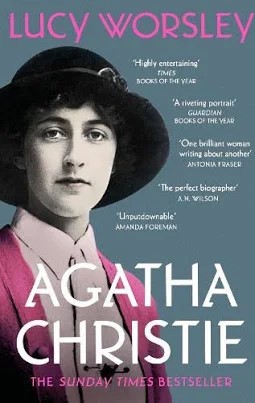
Christie’s success as a writer was ground-breaking. In a time when societal norms often confined women to domestic roles, she defied expectations and carved a path for herself as a highly influential author. Her ability to create complex plots, intriguing characters, and suspenseful narratives showcased a level of intellectual prowess that was often underestimated in women.
While Christie may not have explicitly labeled herself a feminist, her life and work embody many feminist ideals. Her strong female characters, often depicted as intelligent, resourceful, and independent, challenged traditional gender roles. Characters like Miss Marple and Ariadne Oliver were pioneers in their own right, demonstrating that women could be just as capable, if not more so, than their male counterparts.
Christie’s enduring legacy extends beyond her literary contributions. She serves as an inspiration to countless women who aspire to break down barriers and achieve their full potential. Her story reminds us that gender should not be a limiting factor, and that with determination and talent, women can excel in any field. It’s important to acknowledge that gender inequality persists in many forms. By examining her life and work through an ESG lens, we can identify areas where further progress is needed. This includes promoting gender diversity in the workplace, challenging stereotypes in popular culture, and advocating for equal pay and opportunities for women in all fields.
Thomas Hyrkiel
Director of Content and Community at GRIP
In a really odd coincidence, the best books that I read this year both date back to the late 1990s. I guess I am still playing catch-up!
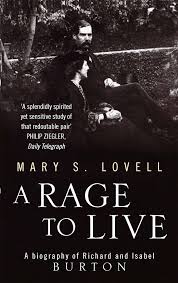
A Rage to Live by Mary S Lovell (1999) is the best book I read this year and one I heartily recommend to all our readers.
It is a biography of Richard and Isabel Burton. The inclusion of the story of the wife of the famous explorer makes this an unusually poignant and measured read. She truly comes out of the shadows as an absolutely fascinating character.
And the love story between them has to be read to be believed – it involves gypsy horoscopes, chance encounters, surreptitious trysts and even a bench at Kew gardens.
Add this to the Great Game, deeply risky travel in the Arabian peninsula and Africa and it quickly becomes apparent that the old adage that truth is stranger than fiction is very much a valid one.
I also really enjoyed An Instance of the Finger Post by Iain Pears (1997). This is an absorbing and atmospheric historical crime novel set in the intellectually frothy England of the Restoration.
The format of four overlapping and sometimes conflicting narratives may not be novel, but is, in this instance, executed extremely well. I think this is down to the fact that the author has paid a significant amount of attention to strongly differentiating the tone of voice of each of the characters.
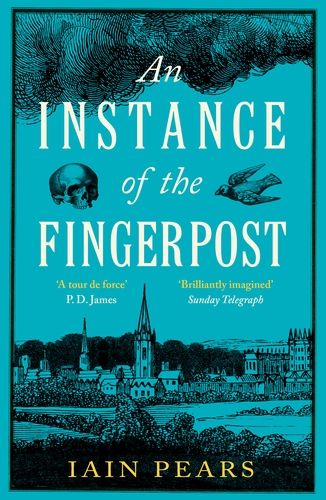
It is also a deeply compassionate book that takes an unflinching look at the tragedy of being a convenient scapegoat in a world of deeply held ideologies.
It has some shortcomings. It comes across a little self-indulgent in terms of length. And the insistence in the last narrative on subtantiating the mystical comes simply comes across as slightly forced.
Having said this, it is very highly recommended read.
Recommendations from guests of The GRIP Files in 2024
Carl E Kennedy
Partner at Katten and former regulator with the CFTC
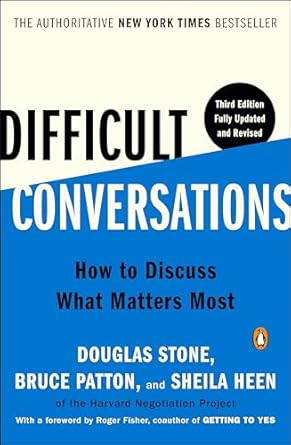
Penguin Books
I would say that among the most recent good books I’ve read is the New York Times bestseller, Difficult Conversations: How to Discuss What Matters Most by Douglas Stone, Bruce Patton, and Sheila Heen.
Susannah Hammond
Compliance Officer
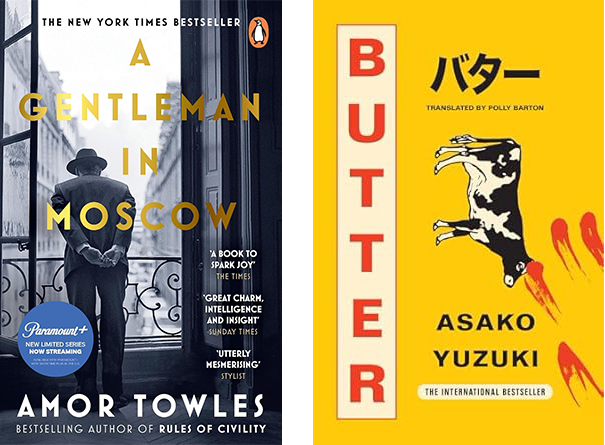
If folks haven’t already read it, I would thoroughly recommend A Gentleman in Moscow by Amor Towles – beautifully written and one I will be re-reading.
I am looking forward to reading Butter by Asako Yuzuki which has come highly recommended.
Matt Franker
Securities and capital markets lawyer at Covington
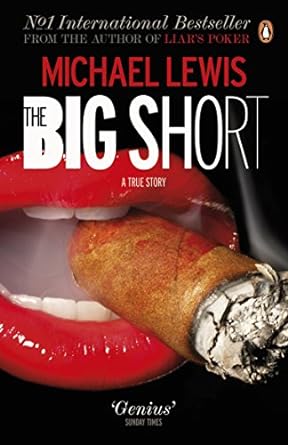
Michael Lewis’s The Big Short: Inside the Doomsday Machine illustrates the value of thinking outside the box, while also helping to explain the financial collapse that gave rise to the regulatory environment that we have been living in for the past 15 years. Plus, if you don’t have time to commit to the book it is a very entertaining movie.
Stephanie Paparizos
Compliance and risk expert
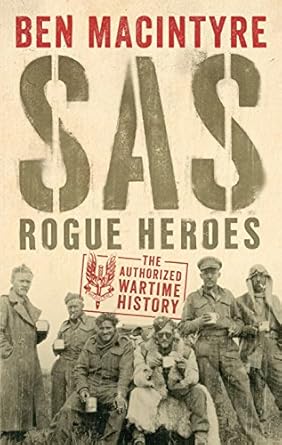
SAS: Rogue Heroes by Ben Macintyre tells the story of how the SAS was formed. It appealed to me as it showed people thinking outside the box and taking on new risks that they had never undertaken before.
Katerina Papavasileiou

Director of ESG and Responsibility at Federated Hermes Real Estate
I have been reading Sum: Forty tales from the afterlives by David Eagleman. A smart and quite funny book.
Howard A. Fischer
Partner at Moses Singer LLP and a former SEC litigator
While there have been a bevy of good books on finance and crypto in the last year or so, I’m going to recommend what I think is one of the best pieces of fiction in recent years, “Exit West” by Mohsin Hamid. While Hamid’s novel takes place against a backdrop of severe global instability and war, and an uncontrollable migrant crisis spanning the world, the book’s denouement is unexpectedly optimistic and hopeful.
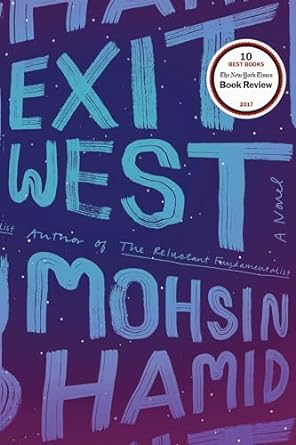
With all the troubles currently wracking the globe, I think it is helpful to emphasize models of optimism. Although many current political problems seem insolvable, hopefulness might be the greatest asset – the first step to resolving a problem is believing that a solution is possible.
Karen Sands
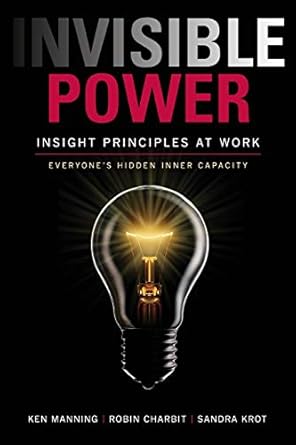
COO – Private Equity, Federated Hermes GPE
I would highly recommend the book Invisible Power: Insight Principles at Work: Everyone’s Hidden Capacity by by Dr. Ken Manning, Robin Charbit, Sandra Krot.
Find all articles in full from The GRIP Files series here.



